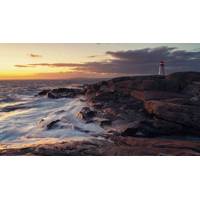
Canada’s Marine Carbon Removal Opportunities Could Be Worth Billions
and economic advantages and incentives for Canada to support mCDR approaches as part of the government’s forthcoming climate competitiveness strategy. Canada is uniquely positioned to pursue mCDR with access to the Atlantic, Pacific, and Arctic Oceans, with both coastal provinces of British Columbia and Nova Scotia already being home to mCDR companies. The report offers an assessment of what is possible when leveraging these attributes, in order to set aspirations and highlight opportunities and co-benefits available.“If advanced safely and responsibly, mCDR can play a leading role
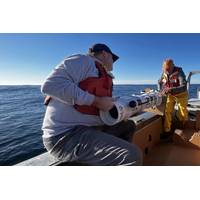
Marine Heatwaves Impact Food Webs
change.The study, published in the scientific journal Nature Communications today, was conducted by an interdisciplinary team of researchers from MBARI, the University of Miami Rosenstiel School of Marine, Atmospheric, and Earth Science, the Hakai Institute, Xiamen University, the University of British Columbia, the University of Southern Denmark, and Fisheries and Oceans Canada.To explore the impacts of marine heatwaves on ocean food webs and carbon flows, the research team combined multiple datasets that tracked biological conditions in the water column in the Gulf of Alaska for more than a decade
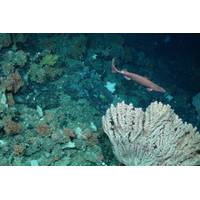
Concerns for Deep Sea Ecosystems Heighten as US Opens Opportunities For Mining and Extraction
moratorium or precautionary pause on deep-sea mining."Torsten Thiele, Founder of The Global Ocean Trust, co-authored Chapter Four of the paper, "Economics of a Deep-Sea Mining Moratorium," alongside Ussif Rashid Sumaila, Professor of Ocean and Fisheries Economics at the University of British Columbia. “The value of the deep sea floor ecosystems is immense," said Torsten. "The ISA has an important role to play in safeguarding this blue natural capital and managing exploration.” “New technologies are enabling a far greater understanding of the deep
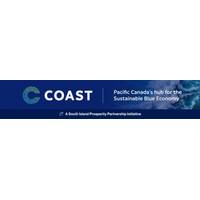
COAST, University of Victoria Join to Launch the BC Marine Energy and Decarbonization Hub
In a stride for the Canadian clean energy transition, two leaders in British Columbia’s ocean innovation sector have announced a joint initiative that forges brand new pathways for the development and commercialization of marine renewable energy and decarbonization technologies in British Columbia.The BC Marine Energy and Decarbonization Hub is a core initiative of COAST, Pacific Canada’s hub for the sustainable blue economy, delivered in partnership with the University of Victoria. The Hub is the culmination of three decades of community-centered clean energy research and innovation
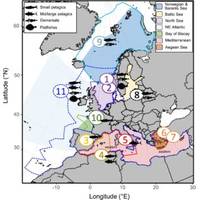
PML: How Climate Change Will Alter European Fish Distribution
Research, Wageningen University and Research, IJmuiden, the NetherlandsTechnical University of Denmark, National Institute for Aquatic Resources, Kongens Lyngby, DenmarkNippon Foundation Ocean Nexus, School of Resource and Environmental Management (REM), Simon Fraser University (SFU), Burnaby, British Columbia, CanadaHellenic Centre for Marine Research (HCMR), Anavyssos, GreeceInstitute of Marine Research (Havforskningsinstituttet) (IMR), Bergen, NorwayDECOD (Ecosystem Dynamics and Sustainability), IFREMER, INRAE, Institut Agro, Brest, FranceCentre for Environment, Fisheries and Aquaculture Science
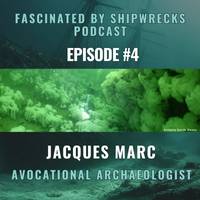
Fascinated by Shipwrecks Podcast, Episode 4: Combing the Deep off the BC Coast
Kathy A. Smith“The thrill of new discoveries, unraveling mysteries, and telling stories about shipwrecks kind of got in my blood, if you will.” Jacques MarcWhat’s it like to challenge the identity of a documented wreck? Jacques Marc did just that on one of his first wreck dives on British Columbia’s south coast. A vessel that sank in Bedwell Bay just after World War II was thought to be the HMCS Cranbrook but once Marc dived on it, all that changed.As an avocational archaeologist (someone who volunteers), Jacques has been instrumental in helping grow the Underwater Archaeological
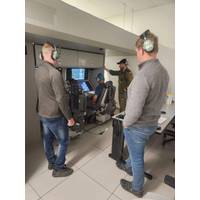
Zelim Showcases Its MOB Detection Solution in Canada
Scottish maritime safety and survival innovator Zelim, has started cooperating with CASARA, Canada’s Civil Air Search and Rescue Association, following the successful demonstration of its ZOE Intelligent Detection and Tracking system.The trials took place in September, in British Columbia, during the National SAREX 24 Search and Rescue exercise.CASARA, a volunteer organization that participates in many of Canada’s search and rescue missions at sea and on land, tested the AI-enabled ZOE system with its drone capability to better detect persons in the water during realistic ocean search
![“Our province has been shaped by the Atlantic Ocean. It can be extremely cold, extremely unforgiving. If it works here, it will work anywhere. The technology we [develop and] use here can be adapted to anywhere else in the world. We are adaptive, we're nimble, we're problem solvers. And at the end of the day, we are collaborative."
Minister Andrew Parsons, Industry, Energy & Technology, Newfoundland & Labrador, Canada. Photo courtesy the office of Minister Andrew Parsons](https://images.marinetechnologynews.com/images/maritime/w200h200padcanvas/province-been-shaped-153427.jpg)
NL Government Helps Power Regional Maritime, Offshore Energy, Subsea Tech Cluster
government is seeking to help develop its own companies, technology and expertise for its own domestic use and for export globally, at the same time it wants to attract international talent and investment, and Parson is quick to point out that with its Eastern locale, it is closer to Germany than British Columbia, the west coast of Canada. There are ample incentives for organizations to set up shop in the Province and collaborate with local companies and academia, but Parsons brings it back to the population and its mentality.“One of the advantages of being our government is that we are truly nimble
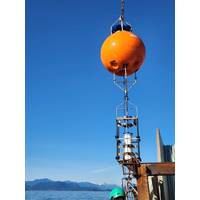
ASL Concludes Metocean Survey for Canada’s Gas Transmission System
program will be used in numerical modeling studies to support pipeline spanning and integrity assessment at various locations, to be conducted by Worley and RPS, a Tetra Tech Company. The Vancouver Island Transmission System is critical energy infrastructure that transports natural gas from the British Columbia mainland to Vancouver Island.This pipeline system ensures a reliable natural gas supply to the Island's residents and industries, supporting residential heating and electricity generation
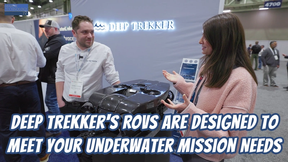
 December 2025
December 2025





